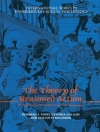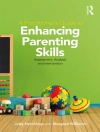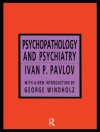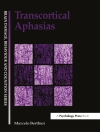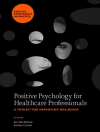This key resource helps practitioners optimize their diagnostic practices in Pre K–12 settings. Now significantly revised for DSM-5, the book cuts through the overwhelming length and complexity of the diagnostic manual by focusing thematically on the most common child and adolescent concerns. Tips are provided for diagnostic decision making and coding, and technical terms are demystified. Emphasis is given to using diagnosis as a foundation for effective intervention. The book highlights links to special education eligibility under IDEA and discusses ethical and professional issues in school-based assessment.
New to This Edition
*Revised throughout for DSM-5.
*Restructured chapters on learning, communication, and motor problems; mood problems; anxiety problems; conduct problems; and impulse-control problems.
*Updated content on IDEA 2004.
*Notes encapsulating changes to each set of diagnostic criteria, for those familiar with the prior DSM.
*Author Commentary sidebars sharing clinical insights and experiences.
İçerik tablosu
1. Introduction: Purposes and Features of This Book
I. Diagnostic Issues and the Use of DSM-5
2. Psychiatric Diagnosis: Issues for School Psychologists
3. An Overview of the DSM-5 Diagnostic System
4. Learning to Use DSM-5
II. Guidelines for Evaluation of Presenting Problems
5. Problems with Intellectual Ability and Cognition
6. Learning, Communication, and Motor Problems
7. Highly Atypical Symptom Patterns: Autism Spectrum Disorders and Psychoses
8. Mood Problems
9. Anxiety Problems
10. Other Internalizing Problems
11. Problems with Conduct
12. Problems with Impulse Control
13. Highly Focused Symptom Patterns
14. Substance-Related Problems and Other Addictive Behaviors
15. Personality Disorders
16. Additional Codes and Categories
III. The Application of DSM-5 In School Settings: Issues and Topics
17. Ethics and Professional Responsibility in Evaluation
18. The Case Record: Data and Supporting Documentation for Diagnosis
19. Seeking Reimbursement for Assessment and Diagnosis within School Settings
20. DSM-5 and the Individuals with Disabilities Education Improvement Act
21. Concerns about DSM-5
Yazar hakkında
Renée M. Tobin, Ph D, is Professor and Chair of the Department of Psychological Studies in Education at Temple University. She teaches graduate-level courses in social, emotional, and behavioral assessment; theories of counseling; consultation; and counseling techniques. She also supervises interns and advanced doctoral students providing assessment, consultation, and therapy for children and adolescents in school, clinic, and residential placement settings. Her primary research publications examine personality and social development, with a focus on promoting emotion regulation processes in youth.
Alvin E. House, Ph D, is Professor Emeritus in the Department of Psychology at Illinois State University. His professional practice and research focus on applying assessment results in school, vocational, medical, and forensic consultations. He is the author of
The First Session with Children and Adolescents and coauthor of a manual on observational assessment of children, as well as journal articles and book chapters on intellectual, personality, and neuropsychological testing.


